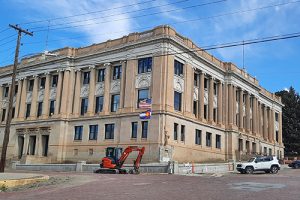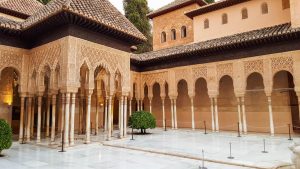This years’ theme for the Spanish Peaks International Celtic Music Festival is coal mining of southern Colorado and of Scotland. As part of that look into the mining past, the Journal will run a series to show memories from local miners and their families about what life in the coal mines and the coal mine camps were like.
My name is Jeannette Patrick Booze, and I come from two coal mining families. On my father’s side the Patrick’s and on my mother’s side the Visich’s. The Patrick’s consisted of Andrew and his brothers, Jack and John. On the Visich side there was my grandfather, Pete Visich Sr. and his sons, John, Pete Jr. and Thomas. The Visich family were musical. All three sons played the accordion, a popular instrument of the time.
I was born in Pictou, Colorado in 1930. Pictou was one of the C&I camps located a short distance from Walsenburg, off Highway 69. At an early age, we moved to the Tiogo mining camp further west off Hwy 69. My brothers Gerald and Michael were born in Tioga. I can recall living in Tioga and going to the two or three room school house whereby the teachers had double grades. We only went to the 8th grade and then came into Walsenburg to attend high school. My brother Gerald and I had to walk to school, which was over a mile. Sometimes the snow was really deep and packed so we could walk on the top of it. We had wonderful teachers and they would play with us. Softball, tag, hide and seek, and in the winter, sleigh riding and making angels in the snow were some of our fun activities.
Being a coal mining family was not an easy life. The coal mines worked in the winter months and then laid off the summer months. Thank God for the company store. You would charge all your groceries, clothing etc. and then pay them off when the mines started to work again. It took almost all year to pay off the store and then came the layoff and you were back where you started.
My father was the late Andrew Patrick Jr. He worked in the coal mines for 50 years. He was born in 1903 in Walsenburg. When he was 14 years old, and in the 8th grade, his father took him out of school and got him a job in the Rouse coal mine. He recalled that, being short of stature, the mining bucket would bump along the ground as he walked to work. My father worked in almost all the CF&I coal mines in the county: Rouse, Ideal, Rugby, Oakview, Cameron, Pictou, Tioga and the last one, Allen Mine by Trinidad. That is where he retired from after 50 years of coal mining, and of course, he had contracted the Black Lung as many a coal miner did.
My father had several close calls. Once when he was working in the Oakview mine along side my Uncle Andrew Conder, the ceiling caved in and killed my uncle. The next one was with my Uncle Pete Visich in the Tioga mine. When the vein of coal came down on my uncle and broke his back. They said he would never walk again, but he was a tough coal miner and did succeed in walking with a limp. Coal mining was a dangerous profession but in those days, there wasn’t much around here for employment. My father recalls, when the coal vein was low, getting to the coal and getting it out, he had to crawl and work on his stomach. Mules were the beasts of burden in the early mining days and the miners relied on them for the heavy workloads.
I can recall when my dad was working in the Tioga mine. My brother Gerald and I would sometimes take Dad his lunch and meet him at the mine entrance. This one time, we were fooling around and dropped his lunch bucket, spilling all the food out on the ground. We didn’t know what to do, because we knew dad would be angry without his lunch so we washed it under the hydrant. Of course, it was soaked, and needless to say, we heard about it that night!
The CF&I had well planned coal comps with YMCA’s in almost every camp. The mining families had all their social activities there, including their dances. Dancing was very popular. My Uncle Pete played the accordion, and used to play them. He played also around most to the schoolhouses in the county.
I remember the most popular dances were polkas, waltzes and jitterbugging. It seemed like every Saturday there was a dance some place whereby you could
forget what kind of a week you had, good or bad, and have a good time. The Beer Barrel Polka was one of the favorites and the dance floor would be crowded when that tune was requested and played.
That’s about all I have to say except it was a different life than today, where we always had something to do from helping haul in coal and wood and taking care of the younger children and working in the garden. I wouldn’t change the way I grew up for anything in this world. It was a wonderful life and I am proud being a coal miner’s daughter.
Jeannette Patrick Booze
More next week




